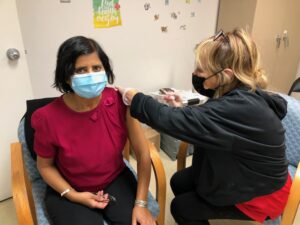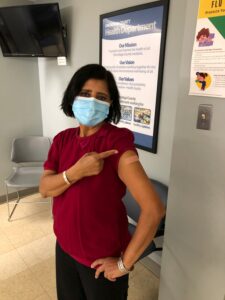Registration is required
SYRACUSE, N.Y. – Onondaga County Executive Ryan McMahon today announced that the Onondaga County Health Department will be expanding four COVID-19 vaccine clinics for children ages 5—11 beginning next week. The clinics for children ages 5—11 will be held at the Civic Center on Mondays and Fridays from 9:00 AM to 11:30 AM and 1:00 PM to 3:30 PM for two weeks beginning Monday, November 8th. Appointments are required.
Clinic times have been expanded and additional slots were added to accommodate community demand. Clinic days are 11/8, 11/12, 11/15 and 11/19. Registration is available on the Onondaga County COVID- 19 website at https://covid19.ongov.net/vaccine/pediatric-vaccine-screening-form/
On November 3, the CDC accepted the Advisory Committee on Immunization Practices’ (ACIP) recommendation that children ages 5–11 be vaccinated against COVID-19. The Pfizer vaccine authorized for this group is over 90% effective at preventing COVID-19. COVID-19 vaccines continue to undergo the most intensive safety monitoring in U.S. history.
All residents who are eligible and have not yet received a COVID-19 vaccine are urged to make an appointment at one of the many clinics and pharmacies listed on the convenient online Vaccine Finder tool at https://www.vaccines.gov/search/. Parents who wish to have their 5- to 11-year-old vaccinated should also call their child’s primary care provider or their school district for information about vaccine availability for that age group.
For more information about the COVID-19 vaccine for children and teens, please visit https://www.cdc.gov/coronavirus/2019-ncov/vaccines/recommendations/children-teens.html


